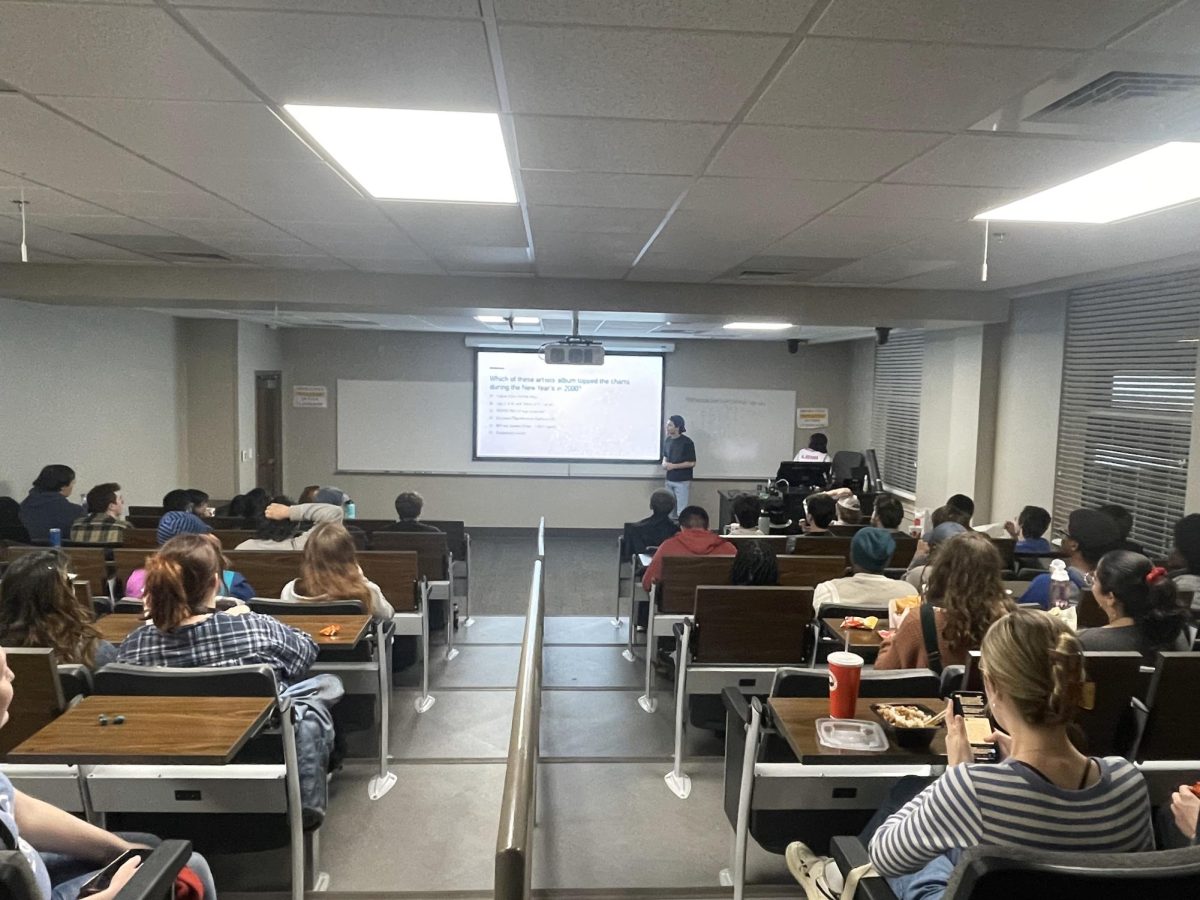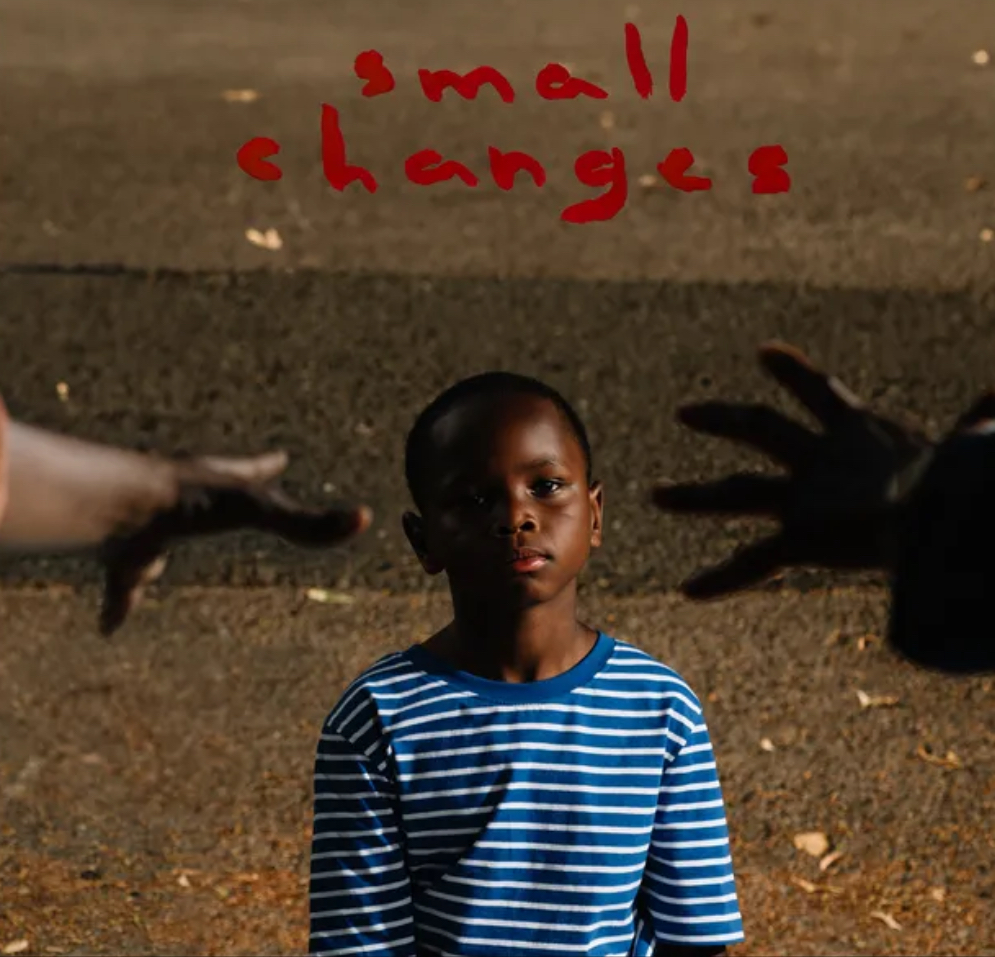It was a little thing, just a snack-sized container of Nutella in her bathroom drawer, but on the morning of a big test during her freshman year, it meant so much more to Sarah Grace Rogers.
It was left there by her roommate, who knew it would be one of the first things Rogers would see when she started her day along with a note of encouragement. She said it “made her whole day,” and the note gave her the confidence she needed to make it through the test.
“It’s just something that you’re not expecting to show you that there’s hope and there’s happiness and that there are genuinely kind of good people,” said Rogers, now a junior majoring in public health. “Sometimes it’s hard to feel that way… It’s not anything significant in and of itself but when someone uses it to help you for your own good and to encourage you, it makes you feel like you matter and like you’re important.”
Rogers’ feelings are based in scientific evidence too. In 1985, psychologists Michael F. Scheier and Charles S. Carver published the first major study looking at the effects on optimism and health. According to The Atlantic, their method has been cited in over 3100 other studies since, proving a link between positive thoughts, optimism and better psychological health and lower levels of depression and anxiety.
“The power of thinking is that it gives meaning to everything that happens around you,” said William Hart, an associate professor with the department of psychology.
While some situations are unambiguous in terms of their emotional impact, Hart said, most instances in life are open to multiple emotional readings. Let’s say you wave at a friend across the Quad only to have them not wave back. Did they just not see the gesture or are they ignoring it?
While some people are naturally predisposed to negative thinking patterns, according to Hart, human thought patterns are not entirely set in stone and can be changed through practice, just like learning to play piano or any other new skill. It starts with understanding that failing doesn’t mean the end, Hart said, but rather a possibility a for growth.
“You have to catch yourself interpreting ambiguous events in a negative way,” he said. “You have to be mindful when you feel depressed or something like that, you have to be mindful of what are you adding to the situation that’s making you depressed. What’s the interpretation you’re adding to the situation that’s making you depressed? You have to be mindful and then you also have to challenge yourself to come up with a more positive interpretation.”
There’s a connection that also exists between negative thoughts and stress that positivity can help with, Hart said. Since stress is a reaction to present or anticipated threats, negative thoughts can actually amplify the amount stress felt in anticipation of failure.
“If you’re studying for a test and you’re thinking to yourself ‘this thing is going to kill me and there’s nothing I can do about it,’ you’re going to be freaked out and stressed,” Hart said. “But if you’re also just able to tell yourself ‘I’ve got an upcoming test and it could kick my butt if I don’t work really hard but if I work really hard I’m going to be fine,’ and so that person works really hard, they study really hard, they come prepared and they do well.”
Being nice to other people can also improve a person’s own positive attitude, Hart said. The mere act of inducing gratitude in another person can increase empathetic and hopeful thoughts.
That’s something Rogers feels is important as well. As the vice president of Crimson Kindness, she helps organize the group’s activities to promote kindness and positivity on campus, including handing out doughnuts in libraries, exam encouragement packets and encouraging chalk drawings.
“You can’t be walking across campus and know what someone’s going through,” she said. “That one small thing could turn their whole day or whole week around and then they feel encouraged and so they want to do that for someone else and it has this really cool ripple effect. Even one small thing, that might not seem significant, can have a much more far-reaching impact than you ever know about.”
Rogers’ favorite strategy for staying positive is seeking out the joy in situations. She was encouraged by a friend earlier this year to find something good in every bad situation and said that strategy has changed her perspective when things go wrong.
“It gives a lot of hope and it changes the way that you approach things,” she said. “If you know that a bad thing happening means that something good will come out of it, that does not at all minimize the hurt or the pain or frustration, but it helps you to keep looking forward and keep moving forward and not be stuck and not get bogged down but the hard things and the sad things.”









